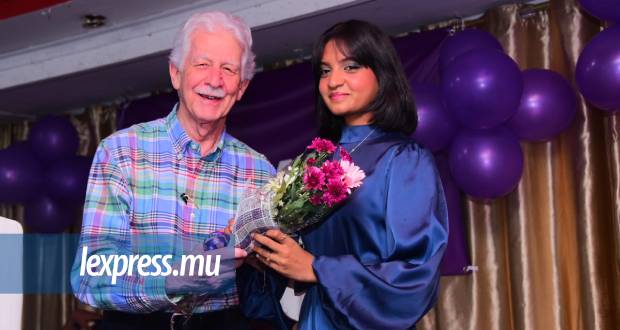Publicité
Rodrigues Regional Assembly: What’s on the menu…
Par
Partager cet article
Rodrigues Regional Assembly: What’s on the menu…

This article purports to critically evaluate the new proposals to elect members to the Rodrigues Regional Assembly as approved by Government on Friday 21 October 2016.
The good, the not so great, the concealed, the missing, the unintended and the nasty
The main features of the new voting formula are as follows:
i) retain the mixed First Past The Post (FPTP) and Proportional Representation (PR) electoral system;
ii) keep the 12 FPTP members in 6 twomember constituencies;
iii) adjust the number of Island-wide PR seats from 6 to 5;
iv) introduce a special seat premium to guarantee an overall majority of at least three seats to the winner of the FPTP mode, irrespective of its vote share;
v) have a variable Regional Assembly of between 17 and 23 members;
vi) preserve the compensatory d’Hondt method of allocating PR seats;
vii) maintain the 10 % threshold of Island vote to be eligible for PR seats
viii) enact an anti-defection provision for both FPTP and PR members;
ix) provide that at least one third of the total number of candidates be of either gender;
● The good
Stay course on the mixed FPTP/PR formula to balance stability with fairness. The Ministerial committee must be commended for rejecting the absolutely pernicious proposal of eliminating the PR component of the current mixed system and replacing it with a Best Loser formula that would have killed political representation in Rodrigues. The initial recommendations of 18 FPTP seats in six districts with three elected members each and 4 seats on a Best Loser system are deeply flawed. Regional elections in the Tobago Assembly with a similar formula show that in 2013 one party took 100 % of the seats while another one with 37 % of the Island’s vote did not capture a single of the 16 seats. It is the equivalent of the infamous 60-0 in Mauritius. Such a system would penalise diversity, stifle inclusion and curtail political representation in Rodrigues.
It is good that the Ministerial Committee has
i) kept the mixed FPTP/PR voting formula;
ii) maintained the 12 FPTP seats in 6 two member districts;
iii) preserved a reasonable share of PR seats with 5 Island wide Party list members;
iv) held on to the 10 % eligibility threshold; and
v) retained the compensatory method of allotting the PR seats
The mixed FPTP/PR formula is a reasonable balance between the two key objectives of a good electoral system which are stability and governability on the one hand and fairness, inclusion and representation on the other.
The anti-defection legislation to prevent floor crossing is also commendable in the context of Rodrigues. It shall apply to both FPTP and PR elected members. It aims at enhancing stability and curbing blackmails and other malpractices. In countries with a large Parliament, a defection of one or two members is unlikely to create instability while in a small Assembly, it could hold the system to hostage. The low number of seats renders the system in Rodrigues vulnerable to unscrupulous practices that could undermine the stability of the system. Subject to the right safeguards that would not frustrate the freedom of individual members to express themselves according to their conscience and to prevent party leaders from abusing of their prerogatives, a member elected under a party should lose his seat if he leaves his party. I must admit that while it is straightforward for the PR member, the case of the constituency member is very debatable. However, in the specific context of Rodrigues, it is an acceptable compromise to ensure stability and check unprincipled behaviour. As is common practice, the defected PR member should be replaced by the next person on the party list. However in the case of a FPTP member, there must be a by-election as it exists in countries with mixed systems. We cannot appoint the next person on the list in such circumstances as the member is directly and nominally elected by the people.
● The not so great
No prior consultation but post-decision dialogue with some stakeholders. The lack of consultation prior to proposing a new voting formula is disrespectful. It could send the signal that other concerns have taken precedence over the broader interests of Rodrigues. We have a duty and a responsibility to avoid such perceptions. There has been no broad consultation and no informed debate as was the case when Judge Ahnee recommended the current formula. It might suggest that the new formula is being imposed by Ministers from Port-Louis and is a ‘take it or leave it’ proposal. Worse, there is absolutely no expert report that critically assesses the current situation and makes a compelling case for reforms after analysing various options. It also seems that the rules of the game are being changed on the eve of elections. This could be construed as promoting some interests in the run up to polling. We cannot place our compatriots of Rodrigues before a ‘fait accompli’. Unless the Committee is willing to make changes to its recommendations after consulting the various stakeholders. It is important to build trust and confidence in the integrity of the new electoral system.
● The concealed
The number of Party list members will increase, not decrease. The Committee gives the impression that the number of PR seats will come down from six to five. With 12 constituency members, this appears to lower the size of the Assembly from 18 to 17 members. However, this is not the whole story. Otherwise, why would the Committee recommend that the Island-wide Party list should have 12 candidates instead of the current six? If the regional polarisation of support continues, there will hardly be any Assembly with 17 members only. In many cases it will be much higher and in some it could reach 23 with the allocation of six additional seats to one party. For instance, had this formula been in operation for the 2012 elections, there would have been 21 members with the allotment of four seats to ensure a majority of three.
● The missing
Avoiding a conflict between FPTP and PR candidates of same party. The Committee could have addressed the problem raised by a PR candidate from a party being somewhat ‘incentivised’ to campaign against his constituency colleagues. As it stands, the chance of the Party list candidate being returned increases if his FPTP colleagues take a high percentage of the vote without being elected in the district. This is plainly unfair. Other countries solve this problem by allowing double candidacies such that an unsuccessful constituency candidate may be returned as a PR member. Also, a formula with one set of vote instead of two sets would help mitigate this shortcoming.
● The unintended
When rhetoric may trump substance and trap women. As the Assembly of a representative democracy should primarily be a mirror of its society, it is only natural that women should have fair and adequate representation. At first, the recommendation that at least one third of candidates should be of either gender appears progressive for women. However, a closer scrutiny shows its clear limits. In Mauritius, with four members per Municipal ward, it is easy to ensure that one third of women candidates are also returned. With two member districts and a one third criteria in Rodrigues, this is a tough nut to crack as there can be a major difference between candidacies and election.
As party allegiance is very polarized, it is highly possible to have one third of women candidates, without any elected female member, as they are fielded in districts where their parties are likely to lose. Equally, if women are ranked fourth and fifth on the party list, they will not be chosen as PR member as only the first two or three on the list would be eligible. For instance, if the Mouvement Rodriguais (MR) fields four women in regions 4 and 6 while the Organisation du Peuple de Rodrigues (OPR) places 4 women in regions 1 and 2, there will be one third of candidates but probably no elected FPTP woman !. Similarly for the Party list, if women are lowly ranked. It happens in many countries, including France, where there is a huge gap between being a candidate and getting elected. This is crudely unfair to women. They deserve better.
My preferred choice to entrench gender fairness is for the 12 FPTP candidates to be equally divided with the proviso that there must be a candidate of either gender in each of the 6 districts. In addition, on the Party list, there must be parity, that is an equal number of candidates of each gender. Also, there must be at least one person of a different gender out of every two sequential candidates on the list. Otherwise, it will only be fine rhetoric and no progress for women in terms of a critical mass of political representation.
One reasonable compromise would be to allot the five PR seats (and the premium seats also) so that one third of the 17 members are of either gender. It would compensate for the underrepresentation of women from the FPTP mode. In that scenario, if no woman were returned among the 12 constituency members, all the five PR seats would go to women from the Party lists so that there is at least 5 women out of 17 Assembly members (29 %). This is the minimum that we should accept.
● The nasty
When a minority becomes a manufactured majority through a constitutional colourable device. The provision to give an overall majority of at least three members to the winner of the FPTP mode irrespective of its vote share is a travesty of democracy, a denial of the wish of the people and an attempt to manufacture a majority of seats out of a minority of vote. Unsurprisingly such colourable device does not exist in any country with a mixed FPTP/PR system. Neither in Germany nor in New Zealand nor in Lesotho and not in the devolved assemblies of Wales, Scotland and London. In these countries, the winner depends on the share of vote and not on the share of FPTP seats.
Just consider what is being contemplated. We have a mixed system with a predominantly FPTP mode at 71 % of seats and a PR component with 29 % of the seats. The PR mode ensures a better alignment between vote and seat shares and corrects the anomalies of the FPTP system.
However the Committee has decided to immediately reverse the impact of such injection of fairness and equity by artificially giving additional seats to the winner of the FPTP election so that it has an overall majority of three seats in the Assembly, irrespective of its vote share.
Why on earth should we remedy the ailment of an unfair system and then instantly reinstate its anomalous features by creating a superficial majority? It is one step forward and immediately two steps backward. Worse, the anomaly is aggravated as the premium increases from one today to three with the reform. This is outrageously undemocratic as it does not reflect the wish of the people.
Two simple examples will show the deep flaws of this preposterous ‘electoral colourable device’.
● One: A democratic farce

Table 1 shows the outcome of an election contested by three parties. Party A takes a majority of FPTP seats with 7 elected members on 37 % of vote while Party B captures 5 such seats with 35 % of vote. Party C has no FPTP seats on 19 % of vote. The allocation of the PR seats gives 2 and 3 members to Party B and Party C respectively. As Party A has polled only 37 % of vote, it obtains no PR seat. However, with the colourable device, Party A is artificially granted a huge premium of 6 seats to manufacture a majority of 3 seats with an overall tally of 13 members. The premium accounts for 86 % of Party A’s actual seats won and is higher than the five Party List seats. The final result is worse than under the FTPT outcome. PR aims at narrowing the difference in seats between winner and unsuccessful parties. Here it has widened it from a wedge of two under FPTP to three after the application of the special provision. This is simply a democratic farce.
● Two: A democratic hijack

Table 2 gives the actual results of the 2006 elections. Because of the regional polarisation of support, both MR and OPR took 6 FPTP seats each, even if MR polled 55.8 % of the vote while OPR captured only 43.1 %. The allocation of the PR seats enabled MR to form a majority as it was awarded 4 PR seats precisely to mirror its 55.8 % vote share. As expected in a democracy, the party with a majority of vote won the elections.

However had 113 people cast their votes differently in the Port-Mathurin district, Francisco Francois of the OPR would have taken the second seat at the expense of Louis Perrine of MR. Overall, OPR would have captured 7 FPTP seats, with say 43.8 % of the vote and MR only 5 FPTP seats on 55.1 %.
In the absence of the special provision and as shown at Table 3, MR would still have won the election as it would receive all the five seats to reflect the fact that it polled 55.1 % of the vote against only 43.8 % for OPR. Again, a party with a majority of vote would emerge as winner.

The outcome is completely different with the colourable device of a majority of three seats for the FPTP winner, irrespective of its vote share. As OPR won 7 FPTP seats, it would be awarded 6 special seats to have a majority of 3 members overall. As illustrated at Table 4, OPR, a loser in popular vote with only 43.8 % of the suffrage, would end up as a manufactured winner with 13 seats while MR, a winner in vote with 55.1 %, would be a loser. The victim could equally have been the OPR with a higher vote share and still losing the election. Simply unbelievable!
This is the reason why it does not exist in other countries with mixed systems. Nobody would accept a constitutional engineering that transforms a loser into a winner.
My preferred choice is that it should be scrapped as it does not echo the wish of the people.
One compromise could be to operate the provision only if the party polled at least 50 % of the Island vote. Especially as we are enacting an anti-defection legislation to prevent floor crossing. We should also lower the number of the premium seats.
● The way forward
Purgatory is better than hell. But we can knock on the gates of heaven. The Ministerial Committee is absolutely right in rejecting the proposal to do away with the PR component of the mixed FPTP/PR voting formula and to replace it with a best loser system that is inequitable. The retention of the mixed formula with 12 FPTP seats and 5 PR members is a reasonable balance as it gives a slight edge to stability while staying inclusive. The introduction of an anti-defection legislation is acceptable in the context of Rodrigues. The lack of prior consultation is disrespectful as it could deprive the recommendations of legitimacy. The Committee could have addressed the problem of conflict between a PR candidate and a FPTP candidate of the same party by allowing double candidacies. The gap between empty rhetoric and meaningful gender fairness is a major lacuna. We simply have to give women their legitimate rights in political representation.
More importantly we cannot manufacture an artificial majority out of a minority of vote. If a party has a minority of vote, it cannot be given a majority of seats through a colourable device. Like it or loathe it, this is what the people want and it must be respected. In any truly democratic country, a party with a minority of vote has to discuss with other parties to form a government. This is how it happens in Germany, New Zealand, Wales, Scotland, the London Assembly and Lesotho.
● One final consideration
Let reason and knowledge prevail over ego and partisanship. The recommendations will have far-reaching consequences on the future political life of Rodrigues. Once chosen, it may remain for a long period. Therefore we cannot afford a botched solution. We must be alert to the unintended consequences of these amendments as Rodrigues may fare worse than what it has bargained for. We need an informed, dispassionate and disinterested debate before making a decision of such importance. The more so on the eve of elections. Maybe we should stay action and decide soberly and advisedly after the next contest. It would also give ample time for the Ministerial Committee to seek the views of independent expert institutions such as the International Institute for Democracy and Electoral Assistance (IDEA) from Sweden or the Electoral Institute for Sustainable Democracy in Africa (EISA) from Southern Africa on the proposed package of reforms, especially the colourable device.
Publicité
Les plus récents






